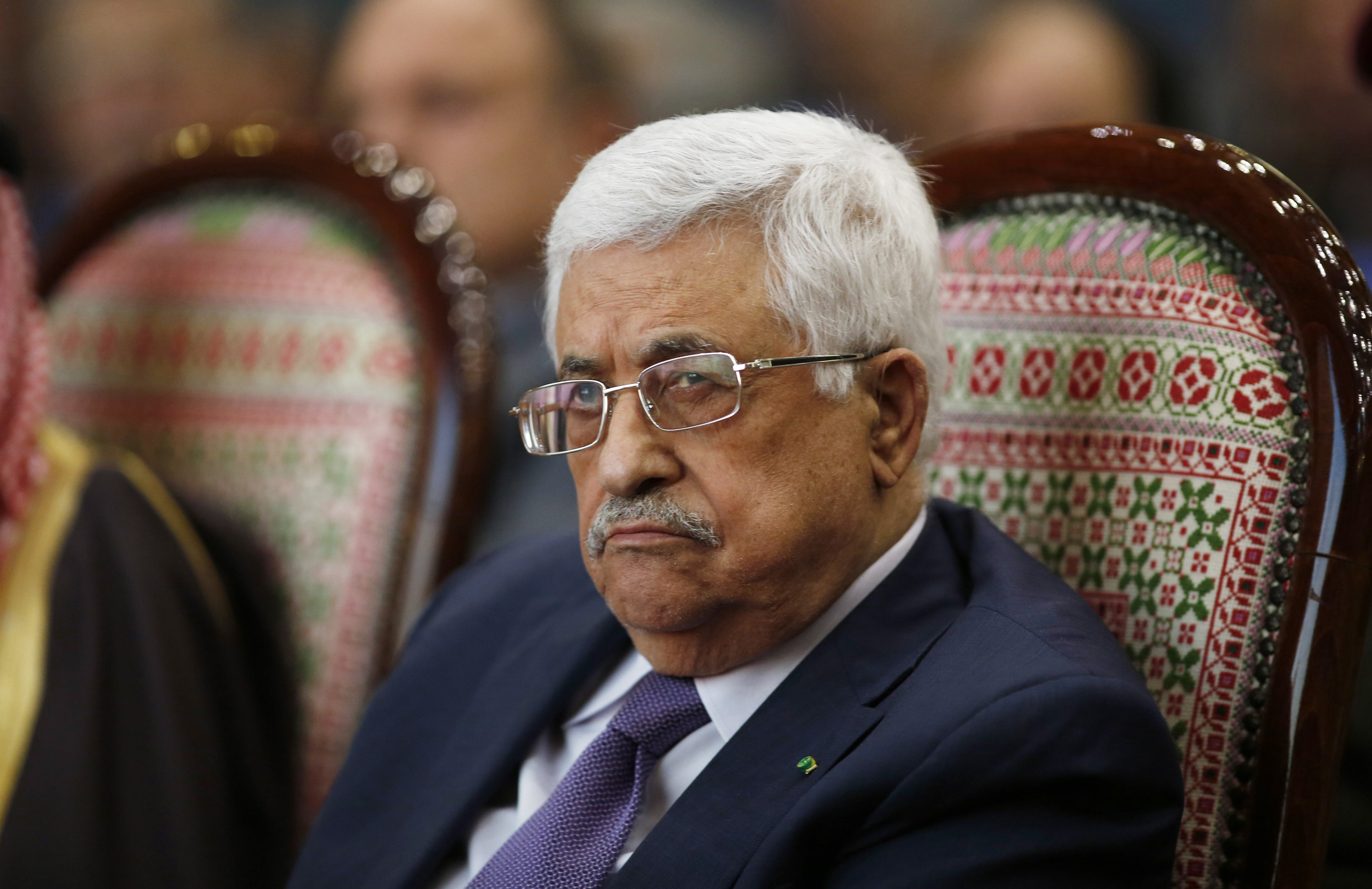Palestine's nonviolent, multilateral gambit
Why punishing Palestine for joining the International Criminal Court is a ridiculous overreaction

A free daily email with the biggest news stories of the day – and the best features from TheWeek.com
You are now subscribed
Your newsletter sign-up was successful
To hear the condemnations from members of Congress, you'd think the Palestinian Liberation Organization had returned to armed struggle. But no, it's Palestinian nonviolence — specifically, the decision by the State of Palestine to join the International Criminal Court — that's being called "deplorable, counterproductive."
Senator Rand Paul (R-Ky.) went the furthest, introducing a bill last Wednesday that would cut off U.S. aid to the Palestinian Authority if it did not cease action at the ICC. "Certainly, groups that threaten Israel cannot be allies of the U.S.," Paul said. "I will continue to do everything in my power to make sure this president and this Congress stop treating Israel's enemies as American allies."
This is a ridiculous overreaction. The Palestinians' move to join the ICC, which would give them the ability to try Israeli officials for alleged war crimes, must be understood as an expression of profound frustration over the stalled peace process.
The Week
Escape your echo chamber. Get the facts behind the news, plus analysis from multiple perspectives.

Sign up for The Week's Free Newsletters
From our morning news briefing to a weekly Good News Newsletter, get the best of The Week delivered directly to your inbox.
From our morning news briefing to a weekly Good News Newsletter, get the best of The Week delivered directly to your inbox.
The moderate Palestinian leadership is in a tight spot: It's faced with an Israeli government that won't end its expansion into Palestinian land, a U.S. mediator that is either incapable or unwilling to pressure it to do so, and a violent Islamist rival in Hamas, which claims that the embrace of nonviolent diplomacy has delivered nothing to the Palestinian people but settlements.
Confronted with these realities, Palestinian moderates have sought nonviolent ways to put pressure on Israel and address the radical power asymmetry that exists.
The U.S. has opposed these efforts on the basis that they represent a "unilateral" step, but protests against "unilateral" Palestinian action are unconvincing. First, as the occupying power, Israel does things "unilaterally" all the time. Every home built in a settlement is a unilateral act. Every roadblock, every checkpoint, every acre of Palestinian farmland destroyed is a unilateral act. Yet no penalties for these acts are ever discussed, let alone seriously considered by Congress.
Second, trying to advance Palestinian national goals through gaining recognition and membership in international bodies like the United Nations and the International Criminal Court is, almost by definition, a multilateral act. And, perhaps most importantly, a nonviolent one.
A free daily email with the biggest news stories of the day – and the best features from TheWeek.com
Nonetheless, Israel has made clear that it would punish the Palestinians for the move, announcing that it would withhold millions in tax revenues that it collects on the Palestinians' behalf, under an arrangement as part of the Oslo Accords. The P.A. depends on these revenues to pay its employees — clerks, teachers, policemen, and firefighters.
The Obama administration, for its part, has opposed that retaliation by Israel, noting that it could threaten the collapse of the P.A., which has coordinated effectively with Israeli security forces in suppressing Palestinian violence in the West Bank. "We conveyed to the Israelis that freezing the tax revenues is an action that raises tensions," U.S. State Department Spokesman Jen Psaki told reporters at a daily briefing. "We oppose to any actions that raise tensions and we call on both sides to avoid it."
And this is the real irony of the threat to withhold aid from the Palestinian Authority. If the P.A. collapses, Israel will be forced to once again bear the full cost of its occupation. Israel clearly does not want this, which is why they've always released the tax revenues in the past after they've felt they made their point.
One way to dissuade Abbas from his course would be to help him deliver real change on the ground for Palestinians. But the Israeli government has shown no interest in this, and the Obama administration is hesitant to put any pressure on Israel as it prepares for elections in March. There's little sign that the dynamic will change, with each of the players moving forward on courses whose consequences they don't seem to have fully considered.
Matthew Duss is president of the Foundation for Middle East Peace, based in Washington, DC.
-
 Gisèle Pelicot’s ‘extraordinarily courageous’ memoir is a ‘compelling’ read
Gisèle Pelicot’s ‘extraordinarily courageous’ memoir is a ‘compelling’ readIn the Spotlight A Hymn to Life is a ‘riveting’ account of Pelicot’s ordeal and a ‘rousing feminist manifesto’
-
 The EU’s war on fast fashion
The EU’s war on fast fashionIn the Spotlight Bloc launches investigation into Shein over sale of weapons and ‘childlike’ sex dolls, alongside efforts to tax e-commerce giants and combat textile waste
-
 How to Get to Heaven from Belfast: a ‘highly entertaining ride’
How to Get to Heaven from Belfast: a ‘highly entertaining ride’The Week Recommends Mystery-comedy from the creator of Derry Girls should be ‘your new binge-watch’